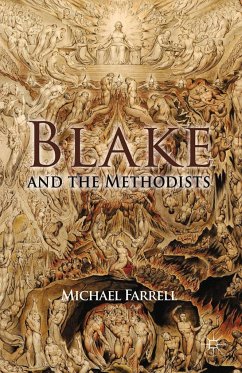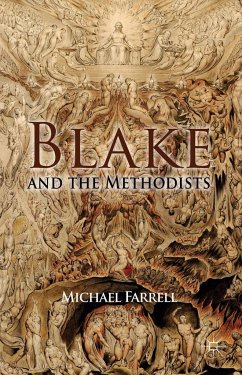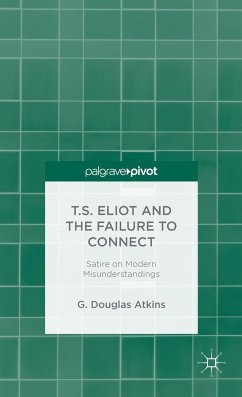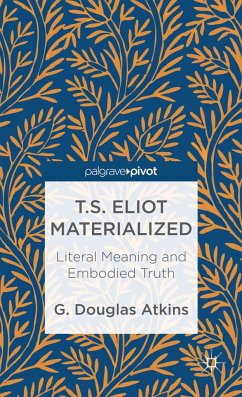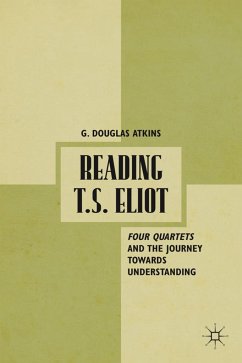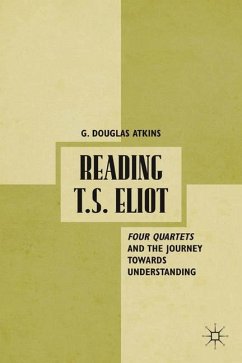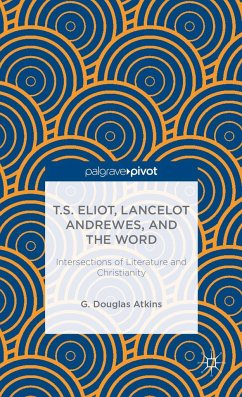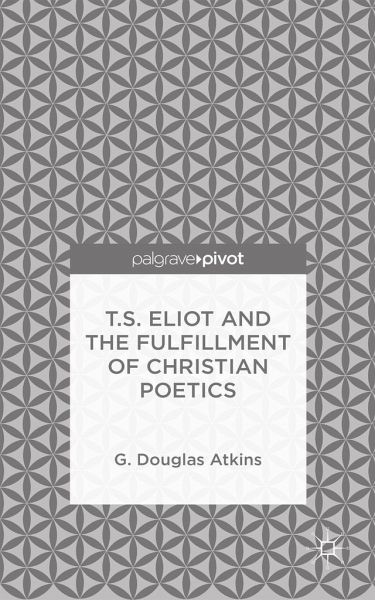
T.S. Eliot and the Fulfillment of Christian Poetics

PAYBACK Punkte
19 °P sammeln!
The culmination of a trilogy that began with T.S. Eliot, Lancelot Andrewes, and the Word, and continued with T.S. Eliot: The Poet as Christian, this gracefully executed new book brings to a triumphant conclusion the unique effort to pinpoint and identify the Christian characteristics of Eliot's poetic art. The book offers a close but companionable reading of each of the complex poems that make up Four Quartets, the essay-poem that is Eliot's masterwork. Focusing on the range of speaking voices dramatized, Atkins reveals for the first time the Incarnational form that governs the work's 'purposi...
The culmination of a trilogy that began with T.S. Eliot, Lancelot Andrewes, and the Word, and continued with T.S. Eliot: The Poet as Christian, this gracefully executed new book brings to a triumphant conclusion the unique effort to pinpoint and identify the Christian characteristics of Eliot's poetic art. The book offers a close but companionable reading of each of the complex poems that make up Four Quartets, the essay-poem that is Eliot's masterwork. Focusing on the range of speaking voices dramatized, Atkins reveals for the first time the Incarnational form that governs the work's 'purposive movement' toward purification and fulfilment of points of view that were represented earlier in the poems.





